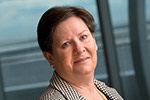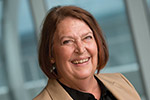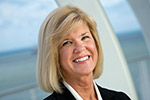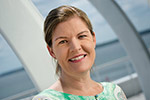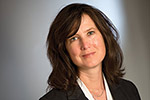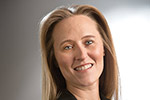Sperling draws line in sand for social injustice
By: Emily Bultman//June 7, 2017//
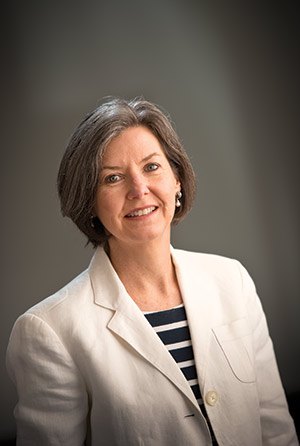
At 9 years old, Carrie Sperling harked back to the words of U.S. Rep. Barbara Jordan during her address at the Democratic National Convention in 1976. Jordan’s speech inspired Sperling to set the wheels of her career in motion.
“I wanted to become a lawyer because I saw so closely the arbitrary injustices that inflicted many Americans who I admired” she said. “U.S. Rep. Jordan offered me a glimpse of what being a lawyer might be like. She convinced me that I, too, could make a difference by drawing my own line in the sand, a line that doesn’t tolerate privilege for some and injustice for others.”
She has spent more than two decades engaged in social justice lawyering in Texas, Arizona and, most recently, in Wisconsin.
Early in her legal career, Sperling served as the director of the American Civil Liberties Union’s North Texas Region. In 2008, while teaching at the Sandra Day O’Connor College of Law, she became the executive director of the Arizona Justice Project, a project that investigates and litigates on behalf of the wrongly convicted.
That experience had Sperling leading a collaboration between the project and the Arizona Attorney General’s Office to provide DNA testing to all Arizona inmates who were convicted of serious crimes but were claiming innocence. During her tenure with the Arizona Justice Project, she laid the groundwork for the release of eight inmates who were wrongly convicted or had suffered a manifest injustice.
In 2013, Sperling joined the University of Wisconsin Law School, where she now serves as the interim director of the Frank J. Remington Center. That center is home to the law school’s in-house criminal law clinics. Sperling, meanwhile, also serves as co-director of the Wisconsin Innocence Project.
“At UW Law School, we’ve come to know her as a talented and hardworking scholar, teacher and administrator, to whom our law students look as a role model,” Margaret Raymond, dean of the University of Wisconsin Law School, said.
She continues to lead efforts to exonerate the innocent. Her duties have her supervising law students in cases dealing with investigations and litigation.
Every year, law students and their supervising attorneys investigate more than 100 claims of innocence. Last fall, the project helped to free its 22nd exoneree. Sperling also oversaw the launch of the Wisconsin Latino Exoneration Program, an initiative to meet the underserved needs of wrongly convicted Latinos.
“I love working with other people who are driven to make the world more just, who are constantly curious about how to become more effective, who are humble and courageous but confident in their ability to make a difference. I have lots of students and colleagues who fit this model,” Sperling said. “They make whatever we do worthwhile. And they inspire me.”
Legal News
- Gov. Evers seeks applicants for Dane County Circuit Court
- Milwaukee man charged in dismemberment death pleads not guilty
- Democratic-led states lead ban on the book ban
- UW Madison Professor: America’s child care crisis is holding back moms without college degrees
- History made in Trump New York trial opening statements
- Prosecutor won’t bring charges against Wisconsin lawmaker over fundraising scheme
- Republican Wisconsin Senate candidate says he doesn’t oppose elderly people voting
- Vice President Harris to reveal final rules mandating minimum standards for nursing home staffing
- Election workers fear threats to their safety as November nears
- Former law enforcement praise state’s response brief in Steven Avery case
- Eric Toney announces re-election bid for Fond du Lac County District Attorney
- Former Wisconsin Democratic Rep. Peter Barca announces new bid for Congress
WLJ People
- Power 30 Personal Injury Attorneys – Russell Nicolet
- Power 30 Personal Injury Attorneys – Benjamin Nicolet
- Power 30 Personal Injury Attorneys – Dustin T. Woehl
- Power 30 Personal Injury Attorneys – Katherine Metzger
- Power 30 Personal Injury Attorneys – Joseph Ryan
- Power 30 Personal Injury Attorneys – James M. Ryan
- Power 30 Personal Injury Attorneys – Dana Wachs
- Power 30 Personal Injury Attorneys – Mark L. Thomsen
- Power 30 Personal Injury Attorneys – Matthew Lein
- Power 30 Personal Injury Attorneys – Jeffrey A. Pitman
- Power 30 Personal Injury Attorneys – William Pemberton
- Power 30 Personal Injury Attorneys – Howard S. Sicula





